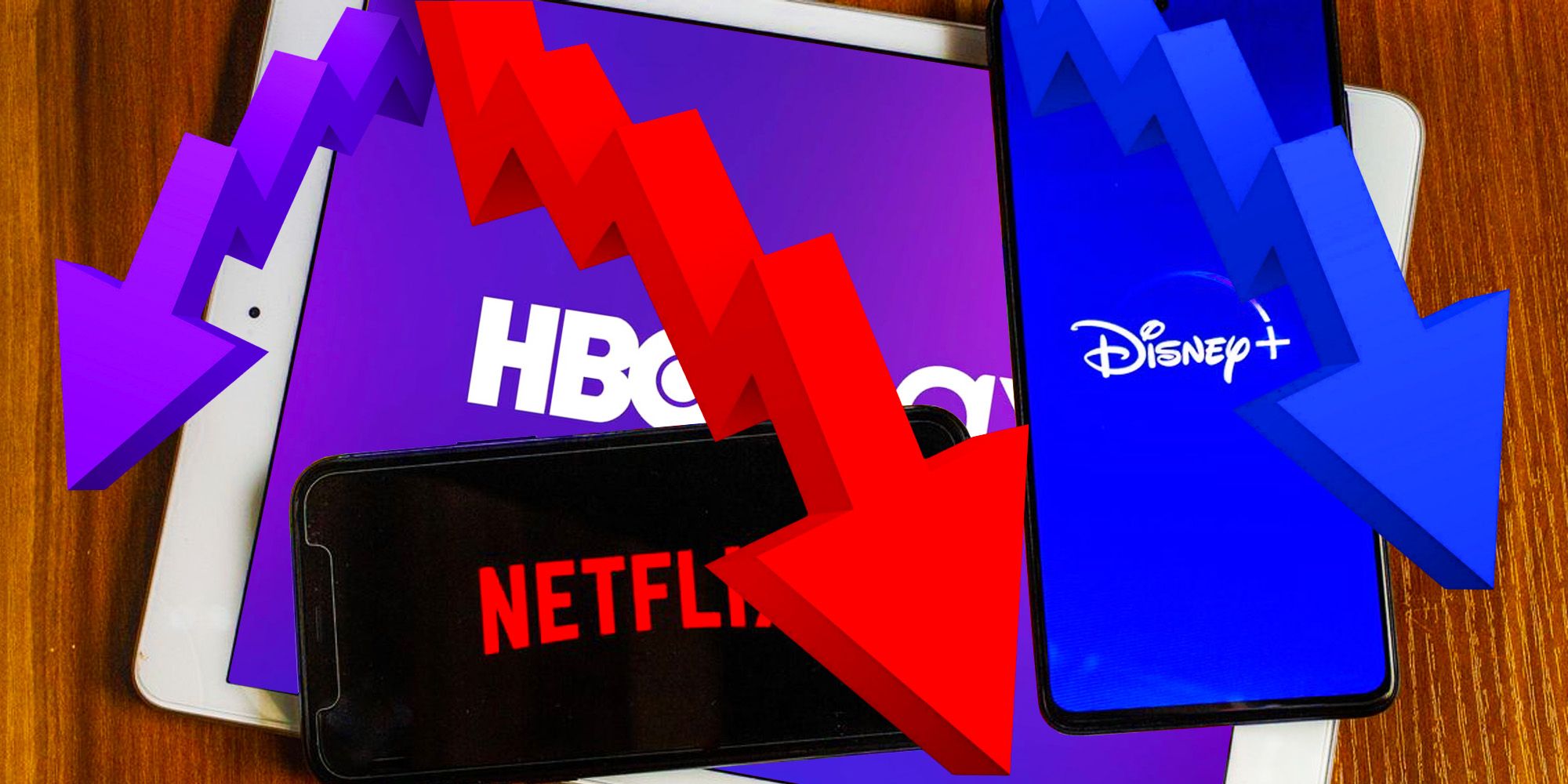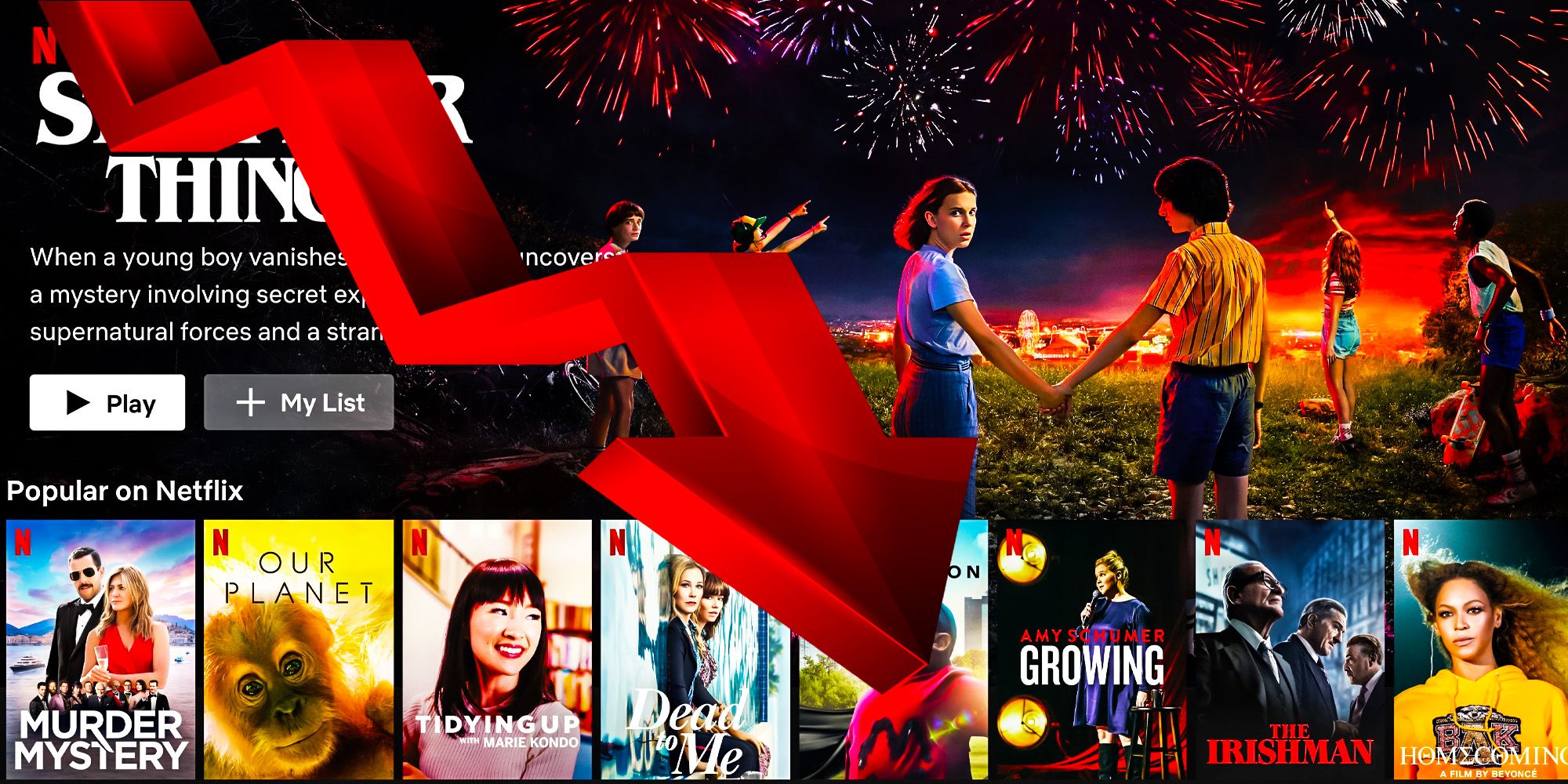Netflix has lost subscribers for the first time in a decade, which may seem like good news for its competitors, but actually signals a larger issue that can equally impact popular services like Disney+ and HBO Max. The streaming wars truly began picking up momentum in 2020, which saw the top streamer Netflix finally face significant competition from Disney+ at the end of 2019 and HBO Max in the spring of 2020. While Netflix still reigned supreme with the most subscribers, the new models for such platforms – alongside increasing competition from services like Peacock, Paramount+, and Apple TV+ – proved the streaming wars wouldn’t always favor the Goliath.
When sharing its report for Q2 earnings in 2022, Netflix revealed that it had lost 200,000 subscribers – its first negative subscriber number in 10 years. Following this news, Netflix’s shares took a worrying dip, though it’s still important to note that the loss in subscribers only dropped from 221.84 million to 221.64 million, which still leaves it at the top of the streaming pyramid. However, considering Netflix has held the number one title since its inception, losing subscribers suggests a more significant issue with its platform to which other streaming services like Disney+ and HBO Max will also be susceptible.
Netflix losing subscribers isn’t a godsend for HBO Max and Disney+ to finally pull ahead in the streaming wars. Rather, Netflix’s predicted drop serves as a warning sign for just how far streamers can push subscribers’ limits before seeing hundreds of thousands cancel their accounts. Netflix's loss of subscribers, more importantly, demonstrates that there’s a ceiling for how much streamers can tolerate financially before needing to readjust their sources of revenue on the service. For example, Netflix’s dip in subscribers should have already been expected when the streamer announced it was going to crack down on account sharing, a method to avoid paying for a subscription that’s been pervasive since the service began. If Netflix finally reached a point where it had to address changing its system to stop account sharing, HBO Max and Disney+ will surely also face this same dilemma.
In addition to becoming strict on password sharing, the Stranger Things streaming home is also resorting to launching an ad-based subscription model, which could either solve much of its problems or backfire entirely. Netflix has finally hit the breaking point where it needs to redress its sources of gain by introducing inconveniences to subscribers, which includes taking away account sharing and pursuing ad-based alternatives, both being two of the primary reasons why consumers cut the cord on cable packages in the first place. HBO Max and Disney+ may not be cracking down as hard on account sharing yet, but Netflix’s loss proves that it’s only a matter of time before this issue comes to light for the other major services – Netflix simply hit the ceiling first because it’s been around the longest.
However, HBO Max has already been using alternative ad-based subscription avenues that allow it to achieve similar gains from those who can’t afford its $14.99/mo plan, which Netflix is now also pursuing in the aftermath of its losses. HBO Max subscriptions allow subscribers to choose between ads or no ads, with the subscription prices significantly lower for the former, but Netflix’s issues suggest the service could still see an increase in subscription rates for both. Disney+ may not have ads yet, but with how much money Disney is funneling into the service for original content, it’s not surprising that the platform is introducing an ad-supported model later in 2022. Just like Netflix, original content makes these streamers more attractive to consumers, but it also means they expect a significant rise in subscribers due to these investments. HBO Max and Disney+ can gloat over Netflix’s losses for now, but these services are still susceptible to the same problems that led to the major streamer's debacle in the first place.


